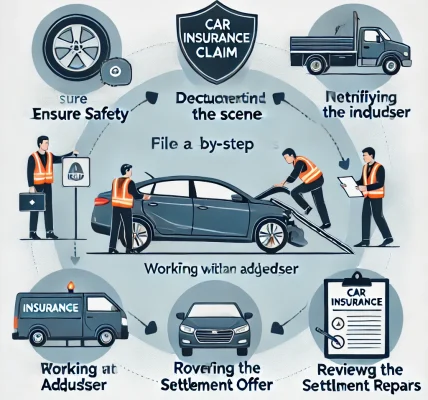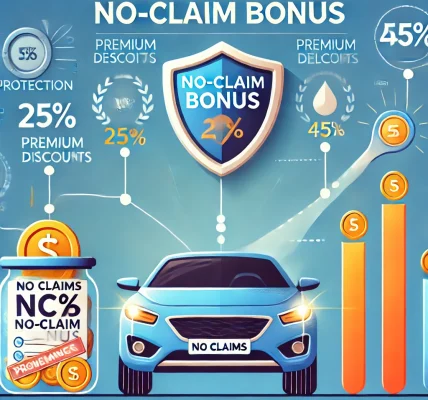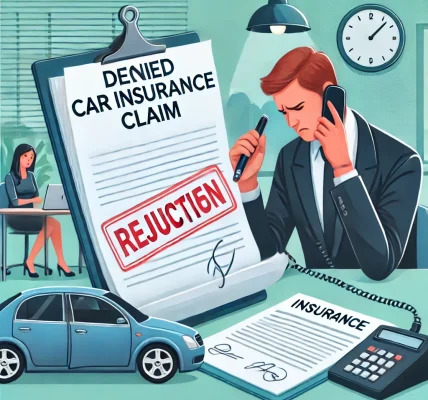Introduction
Car insurance is an essential financial safeguard that protects you against unexpected damages, liabilities, and financial burdens resulting from accidents or other unforeseen incidents. However, choosing the best car insurance policy for your needs can be a daunting task, especially with the variety of options available in the market. A well-chosen policy not only ensures financial security but also provides peace of mind while driving.
In this comprehensive guide, we will discuss the key factors to consider when selecting the best car insurance policy, types of car insurance, tips for saving on premiums, and how to avoid common mistakes. By the end of this article, you will be well-equipped to make an informed decision that suits your needs and budget.
Understanding the Types of Car Insurance Policies
Before choosing a car insurance policy, it is important to understand the different types available:
1. Third-Party Liability Insurance
- This is the most basic and mandatory insurance coverage in many countries.
- It covers damages and injuries caused to a third party but does not cover your vehicle’s damages.
- Suitable for those who want a budget-friendly option and comply with legal requirements.
2. Comprehensive Car Insurance
- Covers both third-party liabilities and damages to your own vehicle.
- Protects against accidents, theft, fire, natural disasters, and vandalism.
- Ideal for those who want extensive coverage and peace of mind.
3. Collision Insurance
- Covers damages to your car resulting from collisions with another vehicle or object.
- Does not cover damages due to natural disasters or theft.
- Recommended for those with expensive or financed vehicles.
4. Personal Injury Protection (PIP)
- Covers medical expenses for you and your passengers regardless of fault.
- Often required in no-fault states.
- Suitable for those who want additional medical protection.
5. Uninsured/Underinsured Motorist Coverage
- Provides coverage if you are hit by a driver who has no insurance or insufficient coverage.
- Helpful in hit-and-run accidents.
Key Factors to Consider When Choosing Car Insurance
1. Assess Your Coverage Needs
- Consider your car’s value, your driving habits, and risk factors.
- If you have an expensive car, opt for comprehensive coverage.
- If you drive occasionally, consider a usage-based insurance policy.
2. Compare Multiple Insurance Providers
- Research and compare policies from different insurers.
- Look for customer reviews, claim settlement ratios, and premium costs.
3. Understand Policy Terms and Conditions
- Read the fine print carefully to understand exclusions, deductibles, and claim processes.
- Check for hidden fees and additional charges.
4. Check the Insurer’s Claim Settlement Ratio
- A high claim settlement ratio indicates a reliable insurer.
- Choose an insurance company with a good reputation for settling claims efficiently.
5. Look for Discounts and Add-Ons
- Many insurers offer discounts for safe driving, bundling policies, or installing anti-theft devices.
- Consider add-ons like roadside assistance, zero depreciation cover, and engine protection.
6. Evaluate the Premium Costs
- Ensure that the premium is affordable and provides value for money.
- Avoid choosing a policy based solely on low premiums, as it may lead to inadequate coverage.
Tips for Saving on Car Insurance Premiums
- Maintain a Clean Driving Record: Safe driving can lower your insurance rates over time.
- Increase Your Deductibles: Opting for a higher deductible can reduce your premium costs.
- Bundle Your Policies: Many insurers offer discounts if you bundle car insurance with home or life insurance.
- Use Telematics or Pay-Per-Mile Insurance: If you drive less, telematics-based insurance can help reduce premiums.
- Take Advantage of No-Claim Bonus (NCB): If you do not file a claim in a policy year, you may be eligible for a discount.
Common Mistakes to Avoid When Choosing Car Insurance
- Ignoring Policy Exclusions: Ensure you understand what is not covered before purchasing.
- Not Comparing Different Insurers: Choosing the first policy you find can result in missing out on better deals.
- Providing Incorrect Information: Any discrepancies in your application can lead to claim rejections.
- Not Updating Your Policy: If you change vehicles or modify your car, update your policy accordingly.
Conclusion
Choosing the best car insurance policy requires careful consideration of your needs, budget, and insurer reputation. Understanding different types of coverage, comparing policies, and leveraging discounts can help you find the right balance between affordability and protection. Avoiding common mistakes and staying informed about policy terms ensures you receive the best possible coverage without unnecessary risks.
By following these guidelines, you can secure a car insurance policy that offers financial protection, legal compliance, and peace of mind while on the road.



